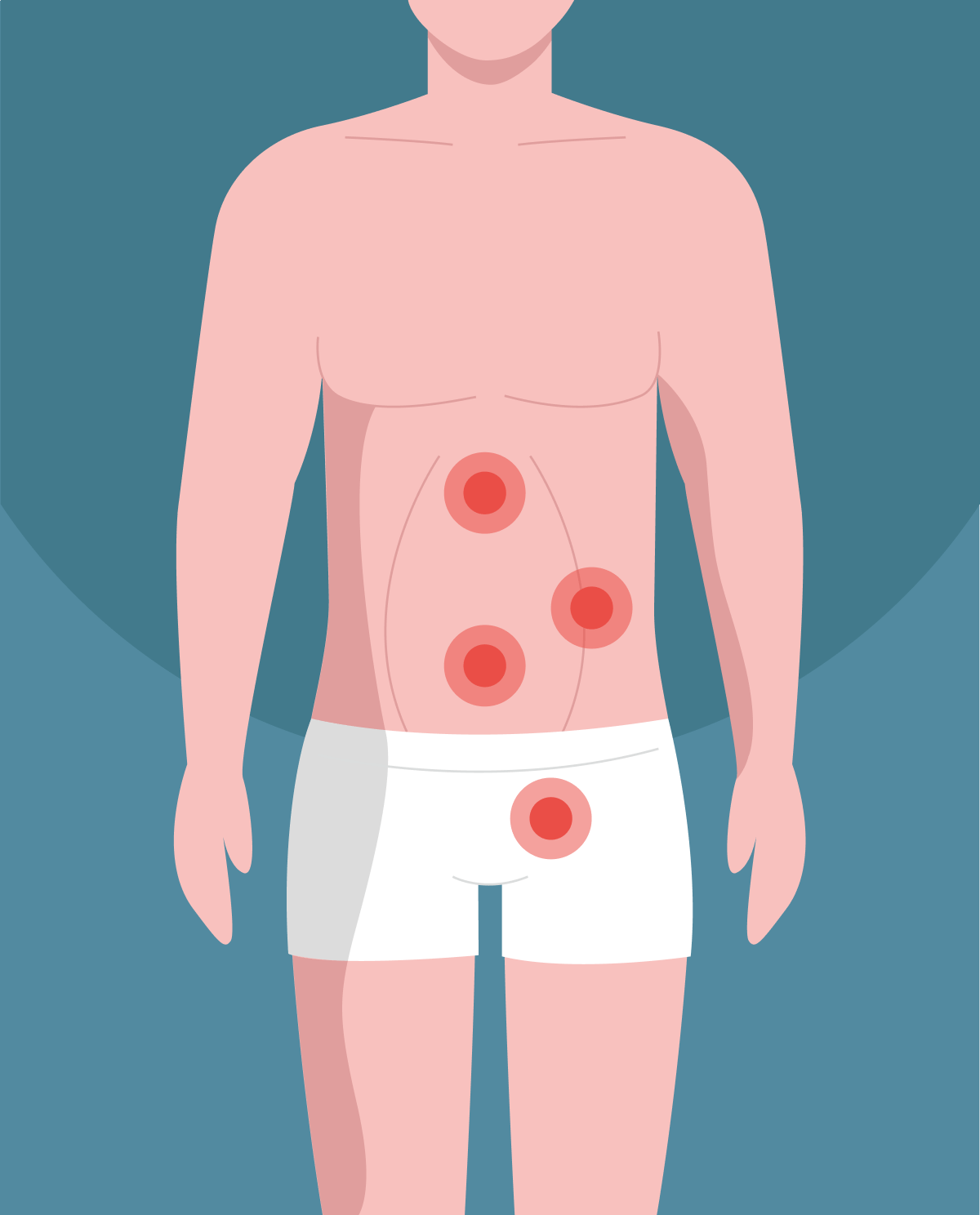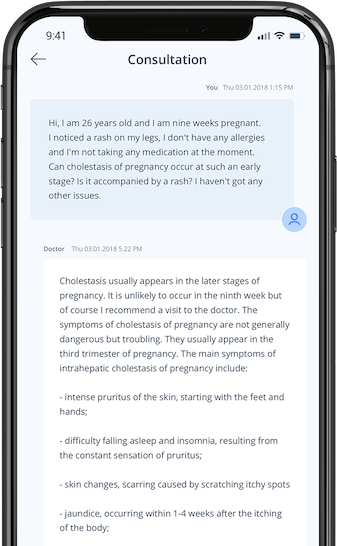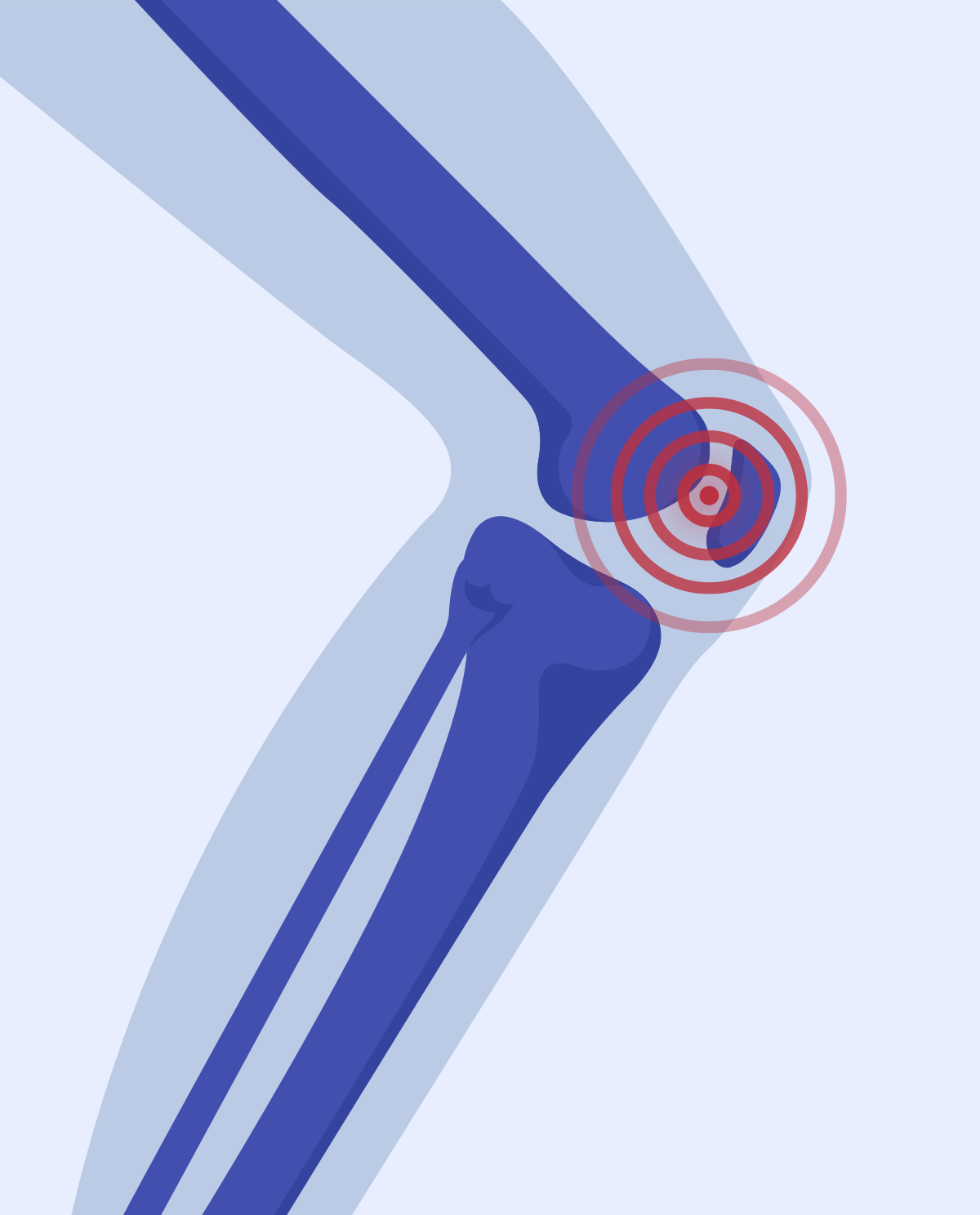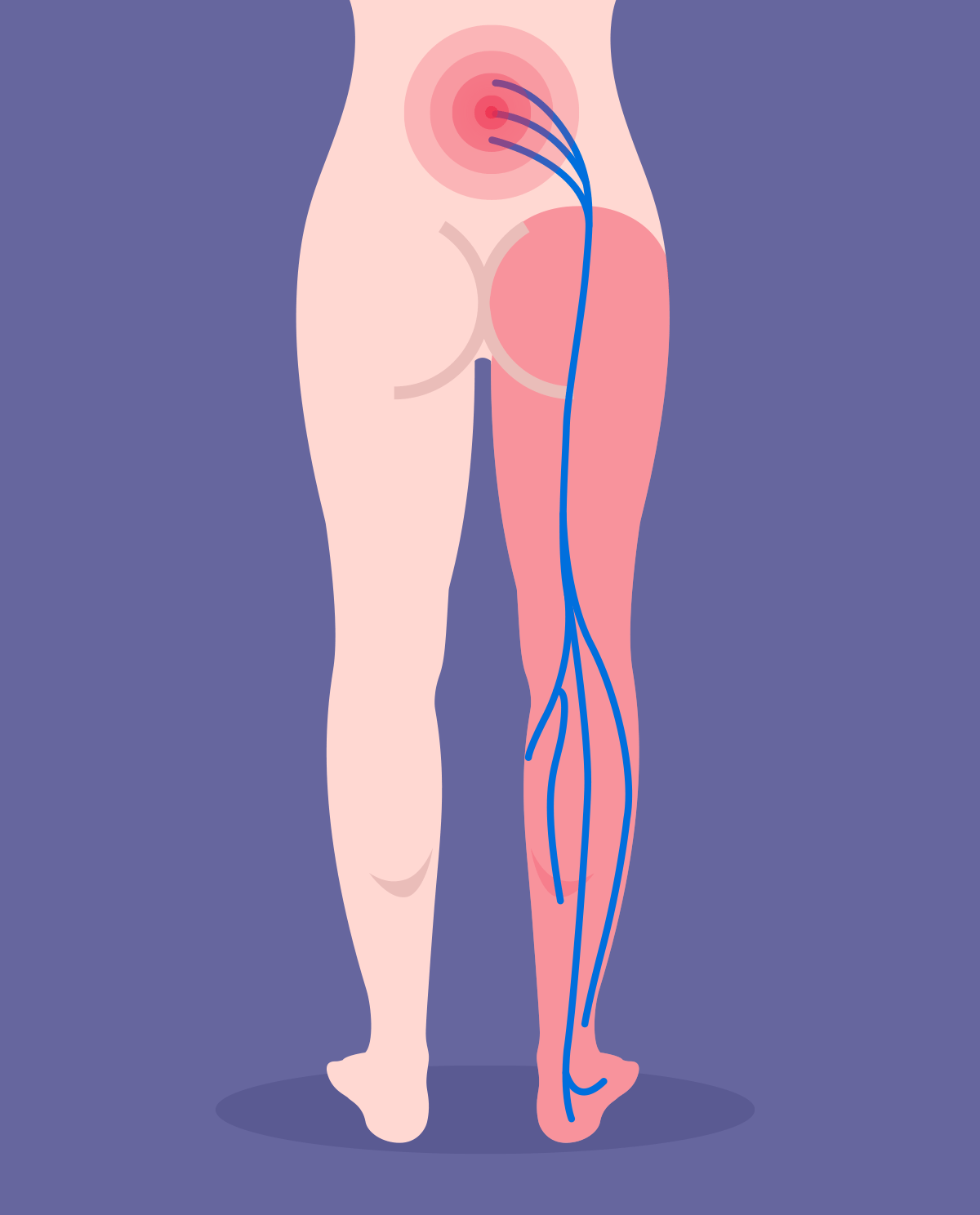Causes of Hernia development
Several factors induce the development of hernias:
- Congenital defects which result in weakness in the abdominal wall.
- Activities that put pressure on the abdomen, such as lifting heavy weights, coughing, or constipation.
- As people age, their muscles and tissues may weaken.
- The extra weight and pressure of pregnancy can strain the abdominal muscles and lead to a hernia.
- Previous surgery.
- Chronic coughing or sneezing: Conditions such as chronic obstructive pulmonary disease (COPD) can cause a person to cough or sneeze frequently, which can put a strain on the abdominal muscles.
Types of hernias
- Inguinal hernia: This is the most common type of hernia, occurring when part of the intestine or other tissue protrudes through a weak spot in the lower abdominal wall, often in the groin area.
- Spigelian hernia: This type of hernia occurs along the semilunar line of the abdominal wall, which is a transition zone between the abdominal muscles and the muscles of the side.
- Hiatal hernia: This type of hernia occurs when the upper part of the stomach bulges through the diaphragm into the chest cavity.
- Femoral hernia: This type of hernia occurs when a portion of the intestine or other tissue pushes through a weak spot in the upper thigh, just below the groin.
- Umbilical hernia: This type of hernia occurs when part of the intestine or other tissue protrudes through the abdominal wall near the navel.
- Incisional hernia: This type of hernia develops at the site of a previous surgical incision when tissue or intestine protrudes through the weakened area.
- Epigastric hernia: This type of hernia occurs when fat or tissue protrudes through the abdominal wall between the navel and the breastbone.
Treatment options for hernias
The treatment options for a hernia depend on several factors, including the type and severity of the hernia, the symptoms experienced by the patient, and the patient's overall health. In general, treatment options for hernias include:
- Watchful waiting: In some cases, a hernia may not cause any symptoms and thus may not require immediate treatment.
- Lifestyle changes: Lifestyle changes such as avoiding heavy lifting, maintaining a healthy weight, and treating chronic cough or constipation.
- Hernia truss: A truss is a supportive undergarment that can help relieve pain and discomfort caused by a hernia. However, it does not treat the underlying hernia
- Surgery: Surgery is the most common treatment for hernias and is usually recommended if the hernia is causing symptoms or complications. Surgical options may include open repair, laparoscopic repair, or robotic-assisted repair.








